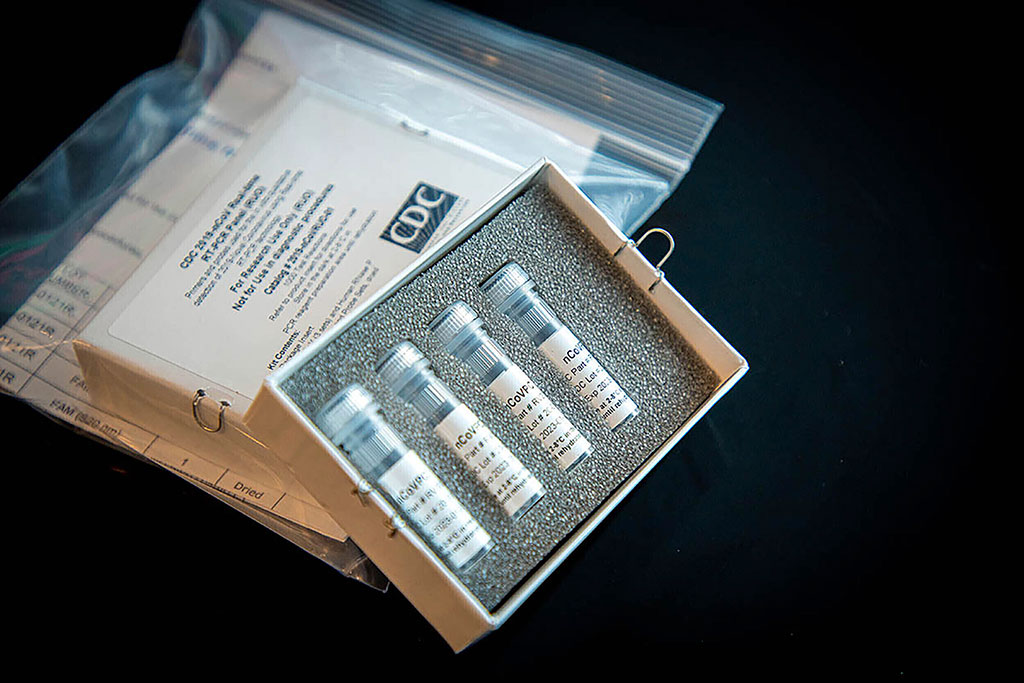New Pooling Strategy Increases Efficiency and Reduces Cost of COVID-19 PCR Tests
By LabMedica International staff writers
Posted on 31 Aug 2020
A new way of manipulating samples for COVID-19 testing of asymptomatic and symptomatic individuals provides both an eight-fold increase in testing efficiency, as well as an eight-fold reduction in test costs.Posted on 31 Aug 2020
Recent reports have suggested that10-30% of SARS-CoV-2 (COVID-19) infected patients are asymptomatic and that significant viral shedding may occur prior to symptom onset. Therefore, there is an urgent need to increase diagnostic testing capabilities to prevent disease spread. A major bottleneck of managing the COVID-19 pandemic in many countries is diagnostic testing, which is primarily performed on symptomatic patients, due to limited laboratory capabilities as well as limited access to genome-extraction and PCR (Polymerase Chain Reaction) reagents.

Image: The CDC 2019 Novel Coronavirus (2019-nCoV) Real-Time Reverse Transcriptase (RT)–PCR Diagnostic Panel detects the SARS-CoV-2 virus in upper and lower respiratory specimens. The new P-BEST approach provides both an eight-fold improvement in testing efficiency as well as an eight-fold reduction in cost of PCR testing (Photo courtesy of Center for Disease Control and Prevention)
To break this bottleneck, investigators at Ben-Gurion University of the Negev (Beer Sheva, Israel) developed P-BEST, a method for Pooling-Based Efficient SARS-CoV-2 Testing, which identifies all positive subjects within a large set of samples using a single round of testing.
In the P-BEST approach, each individual’s sample is assigned into multiple pools using a combinatorial pooling strategy based on compressed sensing designed for maximizing carrier detection. In the pilot study, the investigators pooled sets of 384 samples into 48 pools, which provided both an eight-fold increase in testing efficiency, as well as an eight-fold reduction in test costs.
Results revealed that the P-BEST method successfully identified up to five positive carriers within sets of 384 samples. P-BEST could be configured based on the carrier rate of a given population. Thus, if the carrier rate was below 1.3%, the method provided both an eight-fold improvement in testing efficiency as well as an eight-fold reduction in test costs.
"Approximately 10-30% of COVID-19 infected patients are asymptomatic and significant viral spread can occur days before symptom onset," said contributing author Dr. Angel Porgador, deputy vice-president of research and development at Ben Gurion University of the Negev. "Until there is a vaccine, there will be an urgent need to increase diagnostic testing capabilities to allow for screening of asymptomatic and pre-symptomatic populations. This new single stage diagnostic test will help prevent the spread of the disease by identifying these patients sooner and at a lower cost using significantly fewer tests."
The P-BEST method was described in the August 21, 2020, online edition of the journal Science Advances.
Related Links:
Ben-Gurion University of the Negev













